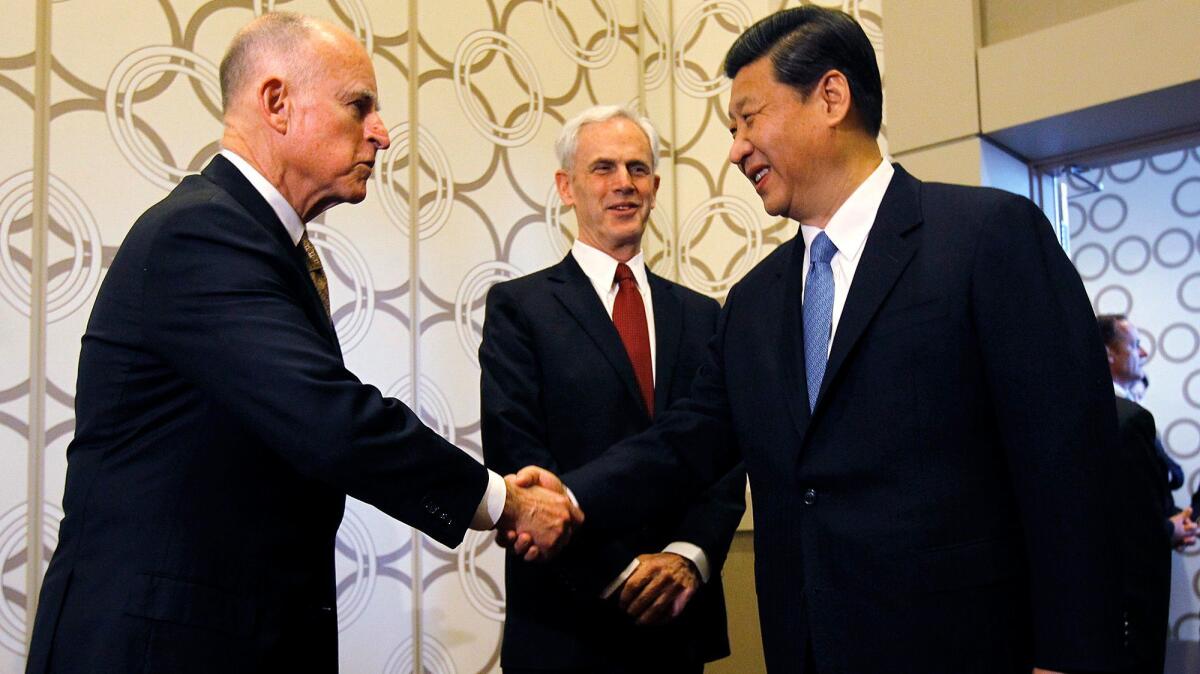Opinion: Gov. Brown understands climate change. Trump doesnât â and the world knows that.

To the editor: Gov. Jerry Brown understands the urgency in reducing greenhouse gases worldwide to avoid an additional 1-degree Celsius increase in global average temperature and the uncontrollable temperature increase âfeedback loopsâ that would result if we fail. (âChina is now looking to California â not Trump â to help lead the fight against climate change,â June 6)
He is using his influence as governor of California, in cooperation with China, the worldâs largest emitter of greenhouse gases, to try to achieve that goal and to compensate for the leadership void in the White House. Californiaâs economy is larger than the economies of all but five nations, giving our state great influence on the world stage.
The key to achieving the needed reductions in greenhouse gases is to use regulations as a way to build momentum for adopting renewable energy until the economy of scale makes it more practical than energy generated by fossil fuels.
Al Barrett, Santa Monica
..
To the editor: Any deal with a country like China, which is greatly expanding renewable energy use domestically but also building coal-burning plants abroad in developing countries (as reported by The Times), should be done with caution.
California shouldnât be in the business of unilateral increases in global warming prevention. This would burden local industry with high energy costs that can make it uncompetitive with Chinese manufacturers. Furthermore, manufacturing in China carries with it a higher probability of drawing power from coal-burning sources and then shipping the products on big diesel-belching transports half way around the world to California.
How does that help us, and how is that good for preventing climate change?
Instead of cap and trade on California businesses, we should institute global warming tariffs on imported goods. President Trumpâs speech on the Paris Climate Accord â in which he said the U.S. can still protect the environment but do it in a way thatâs friendlier to our businesses â was correct. We shouldnât ignore the message because we do not like the messenger.
William Shaw, La CaĂąada Flintridge
Follow the Opinion section on Twitter @latimesopinion and Facebook
More to Read
A cure for the common opinion
Get thought-provoking perspectives with our weekly newsletter.
You may occasionally receive promotional content from the Los Angeles Times.










